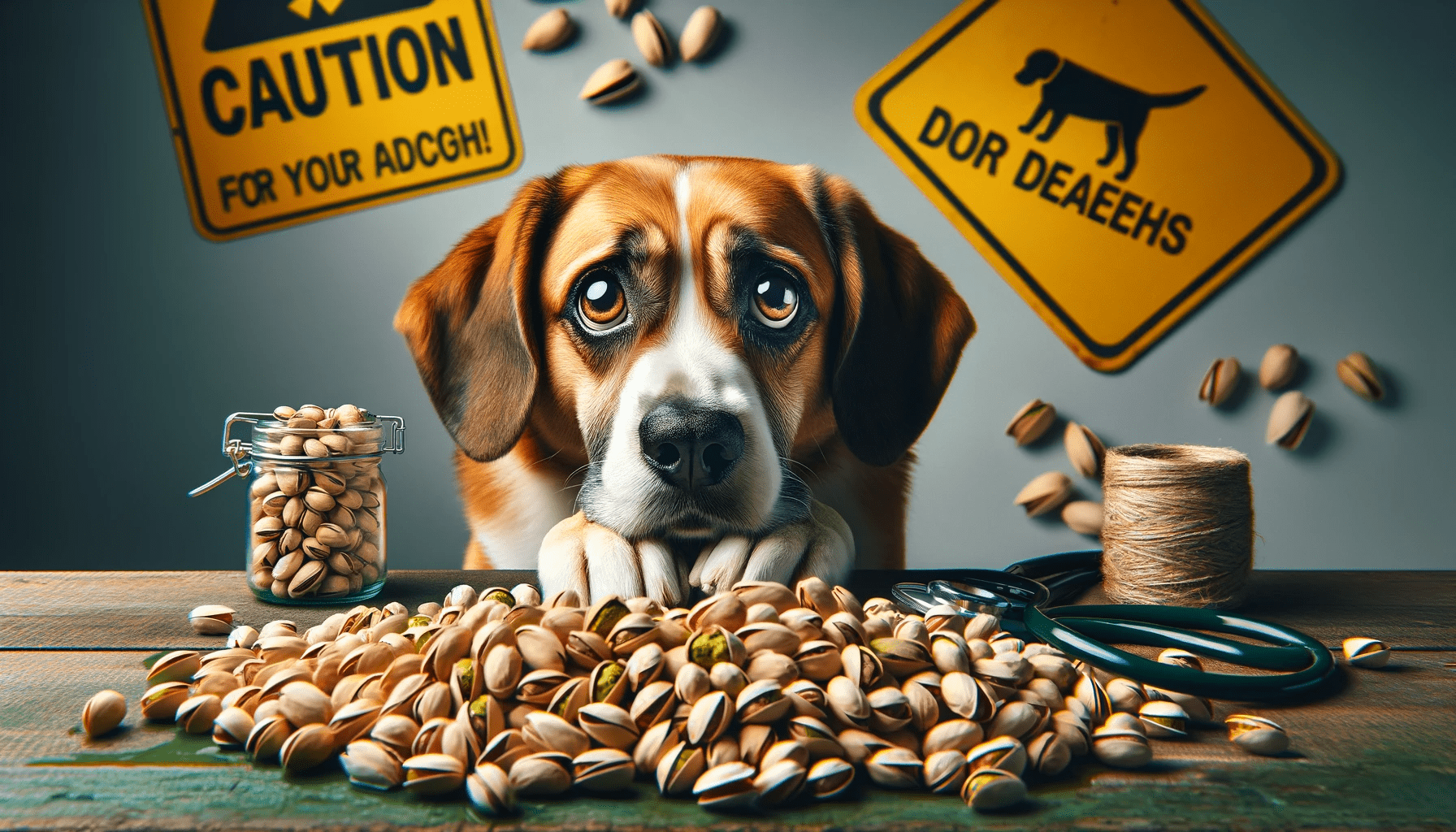Do you know why your furry friend needs proper nutrition?
Dogs, just like humans, require essential nutrients to stay healthy and thrive. Protein plays a vital role in their nutrition, while carbohydrates provide energy. Fats are essential for their overall well-being, and vitamins and minerals are necessary for various bodily functions.
Don't forget about water, a often overlooked but crucial nutrient. Understanding the importance of balanced diets for dogs is key to ensuring their optimal health.
Key Takeaways
- Dogs need essential nutrients such as protein, carbohydrates, fats, vitamins, and minerals for proper growth and overall well-being.
- Protein is essential for muscle development, cell repair, immune system support, and as an energy source for dogs.
- Carbohydrates provide energy, promote healthy digestion, aid in weight management, help with nutrient absorption, and regulate blood sugar levels in dogs.
- Water is essential for digestion, temperature regulation, joint lubrication, organ function, and overall vitality in dogs. Providing fresh, clean water at all times is crucial for hydration.
Essential Nutrients for Dogs
To ensure your dog maintains optimal health, it's crucial to provide them with the essential nutrients they need. Just like humans, dogs require a balanced diet that includes essential vitamins and minerals. These nutrients are necessary for proper growth, development, and overall well-being.
One of the essential vitamins that dogs need is vitamin A. This vitamin plays a crucial role in maintaining healthy skin, coat, and vision. It also supports the immune system and promotes proper cell function.
Another important vitamin for dogs is vitamin D, which aids in the absorption of calcium and phosphorus, essential for strong bones and teeth.
Additionally, dogs require a range of minerals to meet their dietary needs. Calcium is vital for bone strength and muscle function, while phosphorus supports energy production and cell growth. Other essential minerals for dogs include iron, zinc, and magnesium, which are involved in various metabolic processes.
Meeting your dog's dietary needs for essential vitamins and minerals can be achieved through a balanced diet consisting of high-quality commercial dog food or a homemade diet recommended by a veterinarian. It's important to carefully read labels and consult with a professional to ensure your dog receives the right amounts of these essential nutrients for optimal health.
The Role of Protein in Dog Nutrition
Protein plays a crucial role in your dog's nutrition. It's essential for muscle development, providing the building blocks for strong and healthy muscles.
Additionally, protein is made up of amino acids, which are necessary for various bodily functions, including cell repair and immune system support.
Lastly, protein serves as an important energy source for dogs, helping to fuel their daily activities.
Ensuring that your dog receives adequate protein is vital for their overall health and well-being.
Protein for Muscle Development
When ensuring your dog's proper nutrition, it's important to understand the role that protein plays in their muscle development.
Protein is crucial for muscle growth and maintaining healthy muscles in dogs. It provides the necessary amino acids that are essential for building and repairing muscle tissues.
Dogs have specific dietary requirements for protein, which vary based on their age, size, and activity level. Puppies and active dogs require higher levels of protein to support their growing bodies and increased muscle development.
Protein also aids in the production of enzymes and hormones that are essential for proper muscle function.
It's important to provide your dog with high-quality, animal-based protein sources to ensure they receive the necessary nutrients for optimal muscle development and overall health.
Essential Amino Acids
You should regularly feed your dog with high-quality protein sources that contain essential amino acids to ensure their proper nutrition. Essential amino acids are crucial for your dog's overall health and well-being. These amino acids can't be produced by your dog's body and must be obtained through their diet.
Protein synthesis, which is the process of building and repairing tissues, relies on the availability of essential amino acids. They play a vital role in muscle development, immune function, and the production of enzymes and hormones.
Some examples of essential amino acids for dogs include leucine, isoleucine, valine, lysine, methionine, phenylalanine, and tryptophan.
Energy Source for Dogs
To ensure proper nutrition for your dog, it's important to understand the role of protein as an energy source in their diet.
Protein serves as a crucial component in meeting the energy requirements of dogs. Unlike humans, dogs rely heavily on protein as their primary source of energy. This is because dogs are carnivorous animals by nature, and their digestive systems are designed to efficiently process and derive energy from animal-based protein sources.
Protein provides essential amino acids that can't be synthesized by the dog's body, making it vital for their overall health and well-being. Meeting your dog's dietary needs for protein is essential to support their growth, repair body tissues, and maintain a healthy coat and skin.
Providing a balanced diet that meets their energy requirements and includes high-quality protein sources is crucial for your dog's optimal health.
Importance of Carbohydrates in a Dog's Diet
While carbohydrates may often be overlooked, they play a crucial role in providing energy and supporting overall health in your dog. Carbohydrates are a major source of energy for dogs and are easily digestible, making them an important part of their diet.
Here are five key reasons why carbohydrates are important for your dog's nutrition:
- Energy production: Carbohydrates are broken down into glucose, which is the primary source of energy for dogs. This energy is essential for their daily activities, exercise, and overall vitality.
- Digestive health: Carbohydrates, such as fibers, promote healthy digestion in dogs. They help regulate bowel movements and maintain a healthy gut environment by supporting the growth of beneficial bacteria.
- Weight management: Including the right amount of carbohydrates in your dog's diet can help with weight management. Complex carbohydrates, like whole grains, provide a feeling of fullness, preventing overeating and weight gain.
- Nutrient absorption: Carbohydrates aid in the absorption of essential nutrients, such as vitamins and minerals, by facilitating their transportation through the digestive system.
- Blood sugar regulation: Carbohydrates, when consumed in appropriate amounts, help regulate blood sugar levels in dogs. This is particularly important for dogs with diabetes or those prone to blood sugar imbalances.
Vital Role of Fats in Canine Nutrition
Fats, as an essential nutrient, play a vital role in supporting your dog's overall health and nutrition. One important aspect is the role of omega-3 fatty acids in dog nutrition. These fatty acids are polyunsaturated fats that are known for their anti-inflammatory properties. They're crucial for maintaining a healthy immune system, reducing the risk of chronic diseases, and promoting brain development.
Omega-3 fatty acids provide numerous benefits for your dog's health. They support a healthy coat and skin, reducing the occurrence of dryness, itching, and allergies. Additionally, they help to maintain joint health, reducing inflammation and improving mobility, especially in older dogs or those with arthritis.
Incorporating omega-3 fatty acids into your dog's diet can be done through various sources. Fish such as salmon, mackerel, and sardines are excellent sources of omega-3s. Alternatively, you can opt for fish oil supplements specifically designed for dogs. It's important to consult with your veterinarian to determine the appropriate dosage for your dog's size and breed.
While fats are essential, it's also important to consider the benefits of a low-fat diet for dogs. For dogs with certain health conditions, such as pancreatitis or obesity, a low-fat diet may be recommended. This type of diet can help manage these conditions and improve overall health.
The Significance of Vitamins and Minerals for Dogs
Ensure your dog receives proper nutrition by understanding the significance of vitamins and minerals in their diet. Just like humans, dogs require a balanced intake of vitamins and minerals to maintain optimal health. Here are some key reasons why these nutrients are essential for your furry friend:
- Vitamin Deficiency: Dogs, like humans, can experience vitamin deficiencies if their diet lacks certain vitamins. For example, a deficiency in vitamin C can weaken their immune system and make them more prone to infections. Similarly, a lack of vitamin A can affect their vision and skin health.
- Mineral Absorption: Minerals play a crucial role in various bodily functions, including bone development, muscle contraction, and nerve transmission. Without adequate minerals in their diet, dogs may experience issues such as weak bones, muscle weakness, and impaired nerve function.
- Immune Function: Certain vitamins, such as vitamin E and vitamin D, are known to support immune function in dogs. These vitamins help protect against oxidative stress and enhance the immune response, making your dog less susceptible to illnesses.
- Skin and Coat Health: Vitamins like biotin and omega-3 fatty acids are essential for maintaining healthy skin and a shiny coat in dogs. These nutrients promote skin cell renewal, reduce inflammation, and prevent dryness or itchiness.
- Overall Vitality: Vitamins and minerals work together to support the overall vitality and well-being of dogs. From energy production to cell growth and repair, these nutrients are necessary for maintaining a healthy and active lifestyle.
Water: the Often Overlooked Nutrient for Dogs
Water is an essential nutrient for dogs, yet it's often overlooked. Hydration is crucial for maintaining bodily functions, including digestion, temperature regulation, and joint lubrication.
Common signs of dehydration in dogs include excessive thirst, dry gums, and lethargy.
Importance of Hydration
To ensure your dog's proper nutrition, it's important that you understand the often overlooked nutrient for dogs: the importance of hydration. Adequate hydration is essential for your dog's overall health and well-being. Here are some key benefits of proper hydration for dogs:
- Regulates body temperature: Water helps dogs regulate their body temperature, especially during hot weather or vigorous exercise.
- Supports digestion: Sufficient water intake aids in digestion and prevents issues like constipation.
- Promotes healthy organ function: Adequate hydration ensures proper functioning of the kidneys and other vital organs.
- Maintains joint health: Sufficient water intake helps lubricate joints, reducing the risk of arthritis and joint pain.
- Supports overall vitality: Proper hydration keeps your dog energized and promotes a healthy coat and skin.
To ensure your dog stays properly hydrated, follow these water intake guidelines:
- Provide fresh, clean water at all times.
- Adjust water intake based on your dog's size, activity level, and environmental conditions.
- Monitor water consumption to ensure your dog is drinking enough.
Water for Bodily Functions
Your dog's proper nutrition includes the often overlooked nutrient of water, which plays a crucial role in supporting their bodily functions. Water intake is essential for maintaining hydration levels, as it helps regulate body temperature, aids in digestion, and facilitates the transportation of nutrients and oxygen throughout the body.
Dogs lose water through various means such as urination, defecation, panting, and evaporation through the skin. Therefore, it's vital to ensure that your dog has access to clean and fresh water at all times. Adequate hydration is especially important during hot weather or periods of increased physical activity.
Monitoring your dog's water intake and encouraging regular drinking can help prevent dehydration and promote overall health and well-being. Remember, water isn't just a drink for your dog; it's an essential nutrient that supports their bodily functions.
Common Dehydration Signs
As you monitor your dog's water intake and encourage regular drinking, it's important to be aware of common signs of dehydration. Dehydration occurs when your dog's body loses more water than it takes in, leading to an imbalance in bodily functions. To prevent dehydration, it's crucial to recognize the signs early on.
Here are some common signs of dehydration in dogs:
- Decreased energy levels and lethargy
- Dry mouth and sticky gums
- Sunken eyes and loss of skin elasticity
- Loss of appetite and excessive panting
- Dark yellow or orange-colored urine.
If you notice any of these signs, it's essential to provide your dog with fresh water immediately and consult with a veterinarian if the symptoms persist. Remember, proper hydration is key to your dog's overall health and well-being.
Understanding the Importance of Balanced Diets for Dogs
You should regularly provide your dog with a balanced diet to ensure their optimal health and well-being. A balanced diet is essential for dogs as it provides them with the necessary nutrients to support their bodily functions and overall health. Meeting your dog's nutritional requirements through a balanced diet can have numerous benefits.
One of the key benefits of a balanced diet for dogs is maintaining a healthy weight. Just like humans, dogs can become overweight or obese if they consume excessive amounts of calories without proper nutrition. Obesity in dogs can lead to various health problems, including joint issues, heart disease, and diabetes. By providing your dog with a balanced diet, you can help them maintain a healthy weight and reduce the risk of these health issues.
Additionally, a balanced diet promotes proper growth and development in dogs. Puppies, in particular, require specific nutrients in their diet to support their growing bodies. Adequate amounts of protein, vitamins, and minerals are crucial for their muscle development, bone growth, and overall physical development.
Furthermore, a balanced diet can enhance your dog's immune system. Essential nutrients, such as vitamins A, C, and E, as well as omega-3 fatty acids, play a crucial role in supporting the immune system. A strong immune system helps dogs fight off infections and diseases, leading to a healthier and longer life.
Frequently Asked Questions
How Much Food Should I Feed My Dog?
You should feed your dog based on a feeding schedule and practice portion control. This ensures that your dog receives the right amount of food to maintain a healthy weight and overall well-being.
Can I Feed My Dog a Vegetarian or Vegan Diet?
Feeding your dog a vegetarian or vegan diet may seem like a good idea, but it's important to consider their nutritional needs. While some vegetarian dog foods are available, consult with a veterinarian to ensure your dog's diet provides all the essential nutrients they require.
Are There Any Specific Foods That Dogs Should Avoid?
There are certain foods that dogs should avoid, as they can be toxic or harmful to their health. Common misconceptions about dog nutrition can lead to feeding them inappropriate foods.
How Often Should I Change My Dog's Diet?
You should change your dog's diet gradually over a week or two to avoid digestive upset. Different types of dog food offer varying nutritional benefits, so consult with your veterinarian for specific recommendations.
Can I Give My Dog Supplements to Make up for Any Nutritional Deficiencies?
You can give your dog supplements to make up for nutritional deficiencies, but supplement safety is important. It's best to consult with your vet to ensure you're providing the right amount and considering alternative dietary options.
Conclusion
In conclusion, proper nutrition is crucial for dogs to maintain their overall health and well-being.
Essential nutrients such as protein, carbohydrates, fats, vitamins, minerals, and water play vital roles in supporting their growth, energy, immune system, and organ function.
A balanced diet ensures that dogs receive all the necessary nutrients in the right proportions.
By providing them with the right nutrition, we can help dogs lead healthy and active lives, preventing various health issues and promoting longevity.






